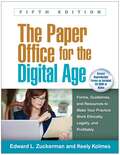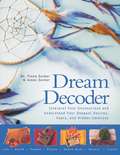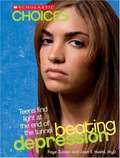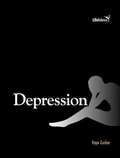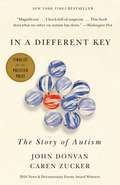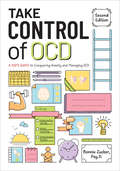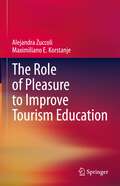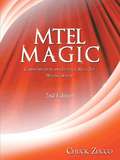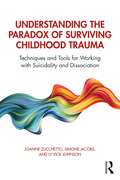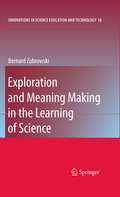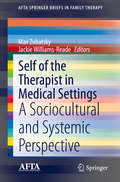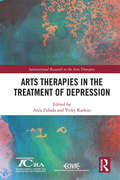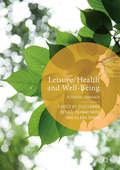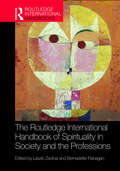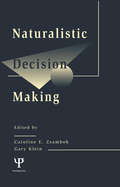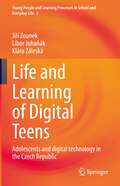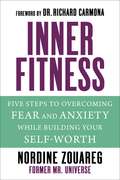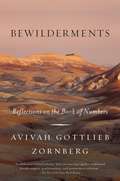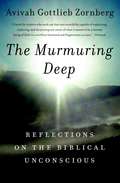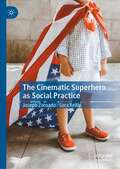- Table View
- List View
The Paper Office for the Digital Age: Forms, Guidelines, and Resources To Make Your Practice Work Ethically, Legally, and Profitably
by Edward L. Zuckerman Keely KolmesSignificantly revised and updated to include online and computerized aspects of private practice, this essential manual has given many tens of thousands of clinicians the complete record-keeping and risk-reduction tools that every psychotherapy practice needs. The book provides effective methods for obtaining informed consent, planning treatment and documenting progress, managing HIPAA compliance, maintaining clinical and financial records, communicating with clients and third-party payers, and reducing malpractice risk. Drawing from the professional literature, it features key guidance and easy-to-digest pointers about the ethical, legal, and business aspects of practice. With a large-size format for easy photocopying, the book and enclosed CD-ROM include 53 reproducible forms and handouts. Purchasers also get access to a companion website where they can download and customize the reproducible materials. <p><p> New to This Edition: <p>*Updated throughout to reflect today's greater use of electronic/digital technologies in practice management. <p>*Chapter on insurance and billing, coping with managed care, and Medicare. *Chapter on private practice marketing, including Internet and social media dos and don'ts. <p>*Expanded topics: HIPAA compliance, ICD-10, responding to subpoenas, and using online technologies for billing, communication, and record keeping. <p>*Information about hundreds of websites dealing with all aspects of operating a practice. <p><p> See also Clinician's Thesaurus, 8th Edition, by Edward L. Zuckerman, the indispensable resource for conducting interviews and writing psychological reports.
Dream Decoder: Interpret Your Unconscious and Understand Your Deepest Desires, Fears, and Hidden Emotions
by Jonny Zucker Dr Fiona ZuckerWhat does it mean when you dream about flying? What do the colors in our dreams mean? What does it mean when there are trees or flowers in our dreams? Dr. Fiona Zucker and Jonny Zucker set out in this comprehensive Dream Decoder the answers to all of your questions about your dreams. The chapters unveil the secrets of many aspects of dreaming, including:Life and deathForces of natureDreaming in greenPeople and placesAnimalsEveryday itemsTravelActions and situationsThe human bodyAnd many more!Along with the interpretations of these symbols, the authors also include information on keeping a dream diary, how to prepare for dreaming, how dream catchers work, and how to have and deal with lucid dreams. With Dream Decoder, you will never have to wonder about your dreams again!
Beating Depression: Teens Find Light at the End of the Tunnel
by Faye Zucker Joan E. HueblLike the magazine, the book series will focus on: - The relationship between positive health behaviors and the prevention of illness and disease - The interrelationship of mental, emotional and physical health - Interpersonal and effective conflict resolution skills; appreciation of diverse perspectives and individual needs - The impact of family as a system Curriculum Standards: Grades 7-12 Health Education Standards - Explain the relationship between positive health behaviors and the prevention of injury/illness - Describe interrelationship of mental, emotional, social, physical health during adolescence - Describe how family and peers influence the health of adolescents. Grades 7-12 Consumer Science Standards Consumer Science and Education - Analyze the impact of family as a system on individuals and society - Demonstrate appreciation for diverse perspectives and needs of individuals and families Interpersonal Relationships - Demonstrate respectful relationships in the family, workplace, & community - Analyze functions and expectations of various types of relationships - Evaluate effective conflict prevention and management techniques - Demonstrate teamwork and leadership skills in the family, workplace, community Character Development and Ethics - Describe appropriate character traits, social skills needed for home, school, community - Describe how personal ethics influence decision-making
Depression
by Faye ZuckerEveryone feels blue sometimes, but how do you know if you're depressed? Depression is a medical condition that occurs when the ordinary blues just won't go away. These feelings of sadness and hopelessness affect more than eighteen million Americans. Depression can help you learn more about the many forms of this illness, as well as its signs and symptoms. You'll also find out about methods of treatment that can help you manage the dark moods of depression, turning sadness into joy.
In a Different Key
by Caren Zucker John DonvanNearly seventy-five years ago, Donald Triplett of Forest, Mississippi became the first child diagnosed with autism. Beginning with his family's odyssey, In a Different Key tells the extraordinary story of this often misunderstood condition, and of the civil rights battles waged by the families of those who have it. Unfolding over decades, it is a beautifully rendered history of ordinary people determined to secure a place in the world for those with autism--by liberating children from dank institutions, campaigning for their right to go to school, challenging expert opinion on what it means to have autism, and persuading society to accept those who are different. It is the story of women like Ruth Sullivan, who rebelled against a medical establishment that blamed cold and rejecting "refrigerator mothers" for causing autism; and of fathers who pushed scientists to dig harder for treatments. Many others played starring roles too: doctors like Leo Kanner, who pioneered our understanding of autism; lawyers like Tom Gilhool, who took the families' battle for education to the courtroom; scientists who sparred over how to treat autism; and those with autism, like Temple Grandin, Alex Plank, and Ari Ne'eman, who explained their inner worlds and championed the philosophy of neurodiversity. This is also a story of fierce controversies--from the question of whether there is truly an autism "epidemic," and whether vaccines played a part in it; to scandals involving "facilitated communication," one of many treatments that have proved to be blind alleys; to stark disagreements about whether scientists should pursue a cure for autism. There are dark turns too: we learn about experimenters feeding LSD to children with autism, or shocking them with electricity to change their behavior; and the authors reveal compelling evidence that Hans Asperger, discoverer of the syndrome named after him, participated in the Nazi program that consigned disabled children to death.By turns intimate and panoramic, In a Different Key takes us on a journey from an era when families were shamed and children were condemned to institutions to one in which a cadre of people with autism push not simply for inclusion, but for a new understanding of autism: as difference rather than disability.
In a Different Key: The Story of Autism
by Caren Zucker John DonvanAn extraordinary narrative history of autism: the riveting story of parents fighting for their children 's civil rights; of doctors struggling to define autism; of ingenuity, self-advocacy, and profound social changeNearly seventy-five years ago, Donald Triplett of Forest, Mississippi, became the first child diagnosed with autism. Beginning with his family's odyssey, In a Different Key tells the extraordinary story of this often misunderstood condition, and of the civil rights battles waged by the families of those who have it. Unfolding over decades, it is a beautifully rendered history of ordinary people determined to secure a place in the world for those with autism--by liberating children from dank institutions, campaigning for their right to go to school, challenging expert opinion on what it means to have autism, and persuading society to accept those who are different. It is the story of women like Ruth Sullivan, who rebelled against a medical establishment that blamed cold and rejecting "refrigerator mothers" for causing autism; and of fathers who pushed scientists to dig harder for treatments. Many others played starring roles too: doctors like Leo Kanner, who pioneered our understanding of autism; lawyers like Tom Gilhool, who took the families' battle for education to the courtroom; scientists who sparred over how to treat autism; and those with autism, like Temple Grandin, Alex Plank, and Ari Ne'eman, who explained their inner worlds and championed the philosophy of neurodiversity. This is also a story of fierce controversies--from the question of whether there is truly an autism "epidemic," and whether vaccines played a part in it; to scandals involving "facilitated communication," one of many treatments that have proved to be blind alleys; to stark disagreements about whether scientists should pursue a cure for autism. There are dark turns too: we learn about experimenters feeding LSD to children with autism, or shocking them with electricity to change their behavior; and the authors reveal compelling evidence that Hans Asperger, discoverer of the syndrome named after him, participated in the Nazi program that consigned disabled children to death.By turns intimate and panoramic, In a Different Key takes us on a journey from an era when families were shamed and children were condemned to institutions to one in which a cadre of people with autism push not simply for inclusion, but for a new understanding of autism: as difference rather than disability.From the Hardcover edition.
In a Different Key: The Story of Autism
by Caren Zucker John DonvanAn extraordinary narrative history of autism: the riveting story of parents fighting for their children ’s civil rights; of doctors struggling to define autism; of ingenuity, self-advocacy, and profound social changeNearly seventy-five years ago, Donald Triplett of Forest, Mississippi, became the first child diagnosed with autism. Beginning with his family’s odyssey, In a Different Key tells the extraordinary story of this often misunderstood condition, and of the civil rights battles waged by the families of those who have it. Unfolding over decades, it is a beautifully rendered history of ordinary people determined to secure a place in the world for those with autism—by liberating children from dank institutions, campaigning for their right to go to school, challenging expert opinion on what it means to have autism, and persuading society to accept those who are different. It is the story of women like Ruth Sullivan, who rebelled against a medical establishment that blamed cold and rejecting “refrigerator mothers” for causing autism; and of fathers who pushed scientists to dig harder for treatments. Many others played starring roles too: doctors like Leo Kanner, who pioneered our understanding of autism; lawyers like Tom Gilhool, who took the families’ battle for education to the courtroom; scientists who sparred over how to treat autism; and those with autism, like Temple Grandin, Alex Plank, and Ari Ne’eman, who explained their inner worlds and championed the philosophy of neurodiversity. This is also a story of fierce controversies—from the question of whether there is truly an autism “epidemic,” and whether vaccines played a part in it; to scandals involving “facilitated communication,” one of many treatments that have proved to be blind alleys; to stark disagreements about whether scientists should pursue a cure for autism. There are dark turns too: we learn about experimenters feeding LSD to children with autism, or shocking them with electricity to change their behavior; and the authors reveal compelling evidence that Hans Asperger, discoverer of the syndrome named after him, participated in the Nazi program that consigned disabled children to death.By turns intimate and panoramic, In a Different Key takes us on a journey from an era when families were shamed and children were condemned to institutions to one in which a cadre of people with autism push not simply for inclusion, but for a new understanding of autism: as difference rather than disability.— Washington Post, Notable Non-fiction Books in 2016— WBUR, Best Books of 2016— Wall Street Journal, Best Books of the Year
In a Different Key: The Story of Autism
by Caren Zucker John DonvanAn extraordinary narrative history of autism: the riveting story of parents fighting for their children ’s civil rights; of doctors struggling to define autism; of ingenuity, self-advocacy, and profound social changeNearly seventy-five years ago, Donald Triplett of Forest, Mississippi, became the first child diagnosed with autism. Beginning with his family’s odyssey, In a Different Key tells the extraordinary story of this often misunderstood condition, and of the civil rights battles waged by the families of those who have it. Unfolding over decades, it is a beautifully rendered history of ordinary people determined to secure a place in the world for those with autism—by liberating children from dank institutions, campaigning for their right to go to school, challenging expert opinion on what it means to have autism, and persuading society to accept those who are different. It is the story of women like Ruth Sullivan, who rebelled against a medical establishment that blamed cold and rejecting “refrigerator mothers” for causing autism; and of fathers who pushed scientists to dig harder for treatments. Many others played starring roles too: doctors like Leo Kanner, who pioneered our understanding of autism; lawyers like Tom Gilhool, who took the families’ battle for education to the courtroom; scientists who sparred over how to treat autism; and those with autism, like Temple Grandin, Alex Plank, and Ari Ne’eman, who explained their inner worlds and championed the philosophy of neurodiversity. This is also a story of fierce controversies—from the question of whether there is truly an autism “epidemic,” and whether vaccines played a part in it; to scandals involving “facilitated communication,” one of many treatments that have proved to be blind alleys; to stark disagreements about whether scientists should pursue a cure for autism. There are dark turns too: we learn about experimenters feeding LSD to children with autism, or shocking them with electricity to change their behavior; and the authors reveal compelling evidence that Hans Asperger, discoverer of the syndrome named after him, participated in the Nazi program that consigned disabled children to death.By turns intimate and panoramic, In a Different Key takes us on a journey from an era when families were shamed and children were condemned to institutions to one in which a cadre of people with autism push not simply for inclusion, but for a new understanding of autism: as difference rather than disability.
In a Different Key: The Story of Autism
by Caren Zucker John DonvanAn extraordinary narrative history of autism: the riveting story of parents fighting for their children ’s civil rights; of doctors struggling to define autism; of ingenuity, self-advocacy, and profound social changeNearly seventy-five years ago, Donald Triplett of Forest, Mississippi, became the first child diagnosed with autism. Beginning with his family’s odyssey, In a Different Key tells the extraordinary story of this often misunderstood condition, and of the civil rights battles waged by the families of those who have it. Unfolding over decades, it is a beautifully rendered history of ordinary people determined to secure a place in the world for those with autism—by liberating children from dank institutions, campaigning for their right to go to school, challenging expert opinion on what it means to have autism, and persuading society to accept those who are different. It is the story of women like Ruth Sullivan, who rebelled against a medical establishment that blamed cold and rejecting “refrigerator mothers” for causing autism; and of fathers who pushed scientists to dig harder for treatments. Many others played starring roles too: doctors like Leo Kanner, who pioneered our understanding of autism; lawyers like Tom Gilhool, who took the families’ battle for education to the courtroom; scientists who sparred over how to treat autism; and those with autism, like Temple Grandin, Alex Plank, and Ari Ne’eman, who explained their inner worlds and championed the philosophy of neurodiversity. This is also a story of fierce controversies—from the question of whether there is truly an autism “epidemic,” and whether vaccines played a part in it; to scandals involving “facilitated communication,” one of many treatments that have proved to be blind alleys; to stark disagreements about whether scientists should pursue a cure for autism. There are dark turns too: we learn about experimenters feeding LSD to children with autism, or shocking them with electricity to change their behavior; and the authors reveal compelling evidence that Hans Asperger, discoverer of the syndrome named after him, participated in the Nazi program that consigned disabled children to death.By turns intimate and panoramic, In a Different Key takes us on a journey from an era when families were shamed and children were condemned to institutions to one in which a cadre of people with autism push not simply for inclusion, but for a new understanding of autism: as difference rather than disability.
Take Control of OCD: A Kid's Guide to Conquering Anxiety and Managing OCD (Take Control Ser. #0)
by Bonnie ZuckerTake Control of OCD: A Kid's Guide to Conquering Anxiety and Managing OCD is a must-have guide for kids and teens ages 10–16 with obsessive-compulsive disorder to help them take control and use their strengths to find success in school and in life. This fully updated second edition:Uses a cognitive-behavioral therapy and exposure/response prevention method to stress gradual exposure to obsessive thinking patterns.Provides a step-by-step ladder-based process to help readers conquer their fears and demolish their worries.Helps kids change their obsessive thoughts, tolerate uncertainty, and develop positive self-talk and stress management.Also helps kids advocate for their needs in school and build successful relaxation procedures.Includes workbook-style pages for readers to complete.From her extensive work with hundreds of young people with OCD, the author offers tons of advice, information, and ideas for kids and teens. Readers will find themselves in this book, as it normalizes and validates the often hidden and undisclosed thoughts, urges, and images, and accompanying rituals and compulsions that so many children and teens with OCD struggle with.
The Role of Pleasure to Improve Tourism Education
by Alejandra Zuccoli Maximiliano E. KorstanjeThis book discusses how pleasure, as an emotional motivation, can play a leading role in improving the learning of new cognitive skills and abilities. Set in a research center orientated to innovate educative techniques for optimizing the learning process, this case study is focusing on the power of pleasure (joy) as a strategy to better the standard education systems in Argentina and beyond.This editorial project is based on an efficient experiment known as “PANCOE” where pre-graduate students of tourism bachelor at the University of Palermo, Argentina, were subject to different pleasurable experiences mainly marked by eating, tasting dishes and non-alcohol drinks while cooking and kneading bread pieces. PANCOE aims to integrate students' senses with their emotions, academic performance, and digital platforms. PANCOE devotes efforts to transforming negative feelings like fear into positive ones like joy. As an outcome, students who had taken part in PANCOE not only obtained higher degrees but also completed their studies with a bachelor's degree. Therefore, PANCOE situates as a promising and exciting tourism education method to better the academic performance of low-grade students in tourism and to bring creativity to the tourism classroom for all students.
MTEL Magic: Writing Subtest
by Chuck ZuccoThe name of this book is a misnomer. There really is no magical solution to taking this or any other test. What makes this book different is that it presents a simple formula for passing-skills + strategies + practice = success.
Understanding the Paradox of Surviving Childhood Trauma: Techniques and Tools for Working with Suicidality and Dissociation
by Joanne Zucchetto Simone Jacobs Ly Vick JohnsonUnderstanding the Paradox of Surviving Childhood Trauma offers clinicians a new framework for understanding the symptoms and coping mechanisms displayed by survivors of childhood abuse. This approach considers how characteristics such as suicidality, self-harm, persistent depression, and anxiety can have roots in behaviors and beliefs that helped patients survive their trauma. This book provides practitioners with case examples, practical tips, and techniques for applying this mindset directly to their most complex cases. By depathologizing patients’ experiences and behaviors, and moving beyond simply managing them, therapists can reduce their clients’ shame and work collaboratively to understand the underlying message that these behaviors conceal.
Exploration and Meaning Making in the Learning of Science
by Bernard ZubrowskiThis book provides a broad and deep rationale for various pedagogical practices associated with the teaching of science. The main thesis of this book is that the exploratory phase of scientific inquiry is undervalued and its purpose misunderstood. Furthermore, there is a need for an expanded conception or alternative way of thinking about the so called learning cycle that has been frequently cited as the pedagogical model for a fair number of curriculum programs. A pedagogical model is proposed that recognizes learning cycles as ones that build on each other in an in-depth developmental manner. It presents an alternative paradigm that gives more attention to the motivation of students and assigns an essential role for student input. The overall goal is to move the reader to think more holistically about the practice of science education. This original and unorthodox book summarizes the author's present thinking about curriculum design and direct work with students. The author draws upon his varied experiences to present a case for the importance of direct engagement with phenomena and materials. He argues that this practice is more than a matter of motivating students to become engaged in inquiry. The first four chapters lay out different levels of a pedagogical approach and an overall theoretical orientation. The middle chapters focus on what might be called sensory knowledge. These are concerned with the role of different sensory engagement, movement as related to gestural representation and the role of empathy in exploration. The last four chapters are about the role of aesthetic, play, variable exploration and metaphor in their shaping of science education experiences. Each chapter is introduced with a scenario or case study describing the behavior and talk of elementary or middle school students. The intention of these scenarios is to help the reader stay grounded while considering the more abstract development of research reports and broader philosophical issues.
Self of the Therapist in Medical Settings: A Sociocultural and Systemic Perspective (AFTA SpringerBriefs in Family Therapy)
by Max Zubatsky Jackie Williams-ReadeThis brief explores how the “person” of the therapist is developed when training and working in medical settings. It highlights important and often unspoken topics such as the personal, professional, cultural, ethical, and competency dilemmas new clinicians regularly face. The brief also addresses how personal experience with illness, death, cultural differences, and stigma may impact professionals in everyday practice. Topics featured in this Brief include:Helpful tips and tricks for new professionals entering a medical setting for the first time.Working with patients who suffer from chronic and terminal illnesses.Sociocultural norms and values that are often present in a medical setting.A new framework for identifying and treating professional burnout.How to handle ethical situations in medical organizations. Self of the Therapist in Medical Settings is a must-have resource for clinicians, professionals, supervisors, and faculty working in medical settings.
Arts Therapies in the Treatment of Depression (International Research in the Arts Therapies)
by Ania Zubala Vicky KarkouArts Therapies in the Treatment of Depression is a comprehensive compilation of expert knowledge on arts therapies’ potential in successfully addressing depression. The book identifies ways of addressing the condition in therapy sessions, shares experience of tools and approaches which seem to work best and guides towards a conscious and confident evidence-based practice. Including contributions from international experts in the field of arts therapies, the book presents some of the most recent, high-profile and methodologically diverse research, whether in the form of clinical trials, surveys or case studies. The three sections of this volume correspond to particular life stages and explore major topics in arts therapies practice and the nature of depression in children, adults and in later life. Individual chapters within the three sections represent all four arts therapies disciplines. The book hopes to improve existing arts therapies practice and research, by encouraging researchers to use creativity in designing meaningful research projects and empowering practitioners to use evidence creatively for the benefit of their clients and the discipline. Arts Therapies in the Treatment of Depression is an essential resource for arts therapies researchers, practitioners and arts therapists in training. It should also be of interest to other health researchers and health professionals, particularly those who work with clients experiencing depression and in multidisciplinary teams.
Leisure, Health and Well-Being: A Holistic Approach (Leisure Studies in a Global Era)
by Zsuzsanna Benkő, Ishwar Modi and Klára TarkóThis book explores health and leisure as a holistic phenomenon with individual and social dimensions. Contributors to this edited volume explore the physical, mental, emotional, sexual and social aspects of health and leisure as well as the influence of moral and religious principles. The connections between the individual and the social structure, social integration, the social division of labor, and the natural environment are also analysed.The volume studies this relationship from a range of disciplinary backgrounds, including sociology, psychology, psychiatry, medical sciences, sport sciences, education, policy making, and from both national and international perspectives. As such, the collection will be of interest to scholars and students across a range of disciplines, including Leisure Studies, Health Studies, Health Promotion, Psychology and Mental Health, Sociology and Sport Studies.
The Routledge International Handbook of Spirituality in Society and the Professions (Routledge International Handbooks)
by Laszlo Zsolnai Bernadette FlanaganIncreasingly, it is being recognized that spirituality, defined here as "a multiform search for a transcendent meaning of life that connects them to all living beings and brings them in touch with God or ‘Ultimate Reality,’" is an aspect of almost every sphere and aspect of social life. It appears in humanity’s dealings with nature, home and community, healing, economics and business, knowledge, and education. The Routledge International Handbook of Spirituality in Society and the Professions is a stimulating collection that summarizes the most important issues, frameworks, discussions, and problems relating to spiritually inspired activities in different fields of social life. The contributors explore how spirituality is a part of existence and present approaches and models for professionals working in diverse areas. Presented in seven parts, the book provides a full overview of current research and practice. Part II, "Facets of spirituality," explores topics including philosophy, psychology, theology, and culture. Part III, "Nature," looks at ecology, agriculture, cities, and tourism. Part IV, "Home and community," presents chapters on various life stages, disability, gender, and culture. Part V, "Healing," examines medicine, mental and physical health, and ill-health. In Part VI, "Economy, politics, and law," contributors discuss business, leadership and the workplace, peace, and policing. Part VII, "Knowledge and education," includes chapters on science, design, fashion, literature, and the arts. In the final part, "Way forward," the editors look to the future with a chapter on inter-spirituality and the renewal of social practices. Driven by contemporary research and new developments, this Handbook is an innovative and interdisciplinary collection that provides an essential overview of contemporary spirituality and society from an international selection of contributors. The Routledge International Handbook of Spirituality in Society and the Professions offers accessible, diverse, and engaging international research, and its scope will appeal to academics and students of a wide range of subjects, including aging and addiction, psychology, theology, religious studies, sociology, business studies, and philosophy. It will also be an important work for professionals in medical and social services, the clergy, education, business, the arts, religious communities, and politics, and members of organizations looking at the links between spirituality, religion, and society.
Klinische Elektroenzephalographie
by Stephan Zschocke Hans-Christian HansenDie Autoren beschreiben in dem Band die physiologischen und pathophysiologischen Grundlagen der Elektroenzephalographie (EEG) und machen die Technologie Schritt für Schritt verständlich: Behandelt werden die EEG-Potenziale in ihren verschiedenen Formen sowie der Einsatz der EEG in der Intensivmedizin. Das Werk hilft Ärzten, brauchbare Kurven zu gewinnen, Befunde zu verstehen und zu interpretieren, aber auch Fehler zu vermeiden. Die 3., aktualisierte und überarbeitete Auflage enthält ein neues Kapitel über die EEG in der Neuropädiatrie.
Naturalistic Decision Making (Expertise: Research and Applications Series)
by Caroline E. Zsambok Gary KleinIf you aren't using the term naturalistic decision making, or NDM, you soon will be. Even as a very young field, NDM has already had far-reaching applications in areas as diverse as management, aviation, health care, nuclear power, military command and control, corporate teamwork, and manufacturing. Put simply, NDM is the way people use their experience to make decisions in the context of a job or task. Of particular interest to NDM researchers are the effects of high-stake consequences, shifting goals, incomplete information, time pressure, uncertainty, and other conditions that are present in most of today's work places and that add to the complexity of decision making. Applications of NDM research findings target decision aids and training that help people in their decision-making processes. This book reports the findings of top NDM researchers, as well as many of their current applications. In addition, the book offers a historical perspective on the emergence of this new paradigm, describes recent theoretical and methodological advancements, and points to future developments. It was written for people interested in decision making research and applications relative to a diverse array of work settings and products such as human-computer interfaces, decision support systems, individual and team training, product designs, and organizational development and planning.
Life and Learning of Digital Teens: Adolescents and digital technology in the Czech Republic (Young People and Learning Processes in School and Everyday Life #6)
by Jiří Zounek Libor Juhaňák Klára ZáleskáThis book describes and explains how digital technologies enter adolescents’ everyday life and learning in different contexts and environments. The book is based on research conducted in recent years in the Czech Republic, the results of which are set within a broad theoretical and international framework.The authors consider the theoretical and methodological anchoring of the topic, describing various approaches in an effort to comprehensively describe and understand the learning process of today’s pupils. They focus on ways to explore learning in the digital era, domestication of digital technology in families, and parents' approaches to digital technology. Attention is paid to adolescents’ competences and autonomy in the use of digital technologies, as well as their views on technology in their lives and learning. The authors summarize the most important results of the research, but also consider the options of empirical research and their own experience with the research of such a complex concept.
InnerFitness: Five Steps to Overcoming Fear and Anxiety While Building Your Self-Worth
by Nordine ZouaregThe goal to improving one's life begins internally. By addressing the quality of your mental state—whether fear, doubt, anxiety, depression—you can achieve a positive self-worth and improve your quality of life. It all begins with you! All of us, at one point in our lives, have wondered if we are able to make the decisions or choices that will turn our lives around. Can I begin that work project I have been putting off? What about the diet that will help me lose weight and get healthy? Can I salvage the marriage that&’s ripping at the seams? What do I do after losing my job? The hardest part can be taking that first step toward such a goal, and the fear can be overpowering. That is the goal of InnerFitness. Former Mr. Universe, Nordine Zouareg, learned that while his outer self was chiseled out of stone, his inner self was crumbling. Rather than giving up, Nordine looked back on his life and actively reflected on the emotions that affected who he had become. From that point forward, his goal was not only to improve the quality of his life, but that of others. During such self-exploration, he noted five key issues to personal improvement. They are: self-worthtrusttranquilitybodydesire to fight By exposing these five basic issues which hold us back, Nordine shows how to be empowered, have emotional clarity, and consistently choose freedom over fear, success over self-sabotage, confidence over insecurity, and courage over passivity. In essence, retraining your brain from &“I&’m not enough&” to &“I&’m good enough.&”InnerFitness explains how to manage your inner voice—the one which tells us we&’re not good enough, that we cannot succeed. By taking such steps, like celebrating victories (large or small) and seeing failures only as temporary and instructional, you will be on a path to loving yourself for who you are…which is the first step to a happier life.
Bewilderments
by Avivah Gottlieb ZornbergThe newest book in Avivah Gottlieb Zornberg's award-winning series of commentaries on the hebrew bible. The book of Numbers is the narrative of a great failure. What should have been for the Israelites a brief journey from Mount Sinai to the Holy Land becomes a forty-year death march. Both before and after the devastating report of the Spies, the narrative centers on the people's desire to return to Egypt, to undo the miraculous work of the Exodus. At its heart are speeches of complaint and lament, expressing a profound existential skepticism. But by contrast, in the narrative of the book of Numbers that is found in mystical and Hasidic sources, the generation of the wilderness emerges as one of extraordinary spiritual experience, receivers of the Torah to the fullest extent, fed on miracles and nurtured directly by God: a generation of ecstatic faith, human partners in an unprecedented conversation with the Deity. Drawing on kabbalistic sources, the Hasidic commentators on the book of Numbers depict a people who transcend prudent considerations in order to follow God into the wilderness, where their spiritual yearning comes to full expression. This view of the wilderness history invites us into a different kind of listening to the many cries of distrust, lament, and resentment that issue from the Israelites throughout the book of Numbers. Is there a way to integrate this narrative of dark murmurings, of obsessive fantasies of return to Egypt, with the celebration of a love-intoxicated wilderness discourse? The question touches not only on the language the Israelites speak but also on the very nature of human utterance. Who are these people? Who are we who listen to them? What effect does the cumulative trauma of slavery, the miracles of Exodus, the revelation at Sinai, have on a nation that is beginning to speak? In Bewilderments, one of the most admired biblical commentators at work today posits fascinating answers to these questions through the magnificent literary, scholarly, and psychological analysis of the text that is her trademark.From the Hardcover edition.
The Murmuring Deep: Reflections on the Biblical Unconscious
by Avivah Gottlieb ZornbergFrom one of the most innovative and acclaimed biblical commentators at work today, here is a revolutionary analysis of the intersection between religion and psychoanalysis in the stories of the men and women of the Bible. For centuries scholars and rabbis have wrestled with the biblical narrative, attempting to answer the questions that arise from a plain reading of the text. In The Murmuring Deep, Avivah Zornberg informs her literary analysis of the text with concepts drawn from Freud, Winnicott, Laplanche, and other psychoanalytic thinkers to give us a new understanding of the desires and motivations of the men and women whose stories form the basis of the Bible. Through close readings of the biblical and midrashic texts, Zornberg makes a powerful argument for the idea that the creators of the midrashic commentary, the medieval rabbinic commentators, and the Hassidic commentators were themselves on some level aware of the complex interplay between conscious and unconscious levels of experience and used this knowledge in their interpretations. In her analysis of the stories of Adam and Eve, Noah, Jonah, Abraham, Rebecca, Isaac, Joseph and his brothers, Ruth, and Esther-how they communicated with the world around them, with God, and with the various parts of their selves-Zornberg offers fascinating insights into the interaction between consciousness and unconsciousness. In discussing why God has to "seduce" Adam into entering the Garden of Eden or why Jonah thinks he can hide from God by getting on a ship, Zornberg enhances our appreciation of the Bible as the foundational text in our quest to understand what it means to be human.From the Hardcover edition.
The Cinematic Superhero as Social Practice
by Joseph Zornado Sara ReillyThis book analyzes the cinematic superhero as social practice. The study’s critical context brings together psychoanalysis and restorative and reflective nostalgia as a way of understanding the ideological function of superhero fantasy. It explores the origins of cinematic superhero fantasy from antecedents in myth and religion, to twentieth-century comic book, to the cinematic breakthrough with Superman (1978). The authors then focus on Spider-Man as reflective response to Superman’s restorative nostalgia, and read MCU’s overarching narrative from Iron Man to End Game in terms of the concurrent social, political, and environmental conditions as a world in crisis. Zornado and Reilly take up Wonder Woman and Black Panther as self-conscious attempts to reflect on gender and race in restorative superhero fantasy, and explore Christopher Nolan’s Dark Knight trilogy as a meditation on the need for authoritarian fascism. The book concludes with Logan, Wonder Woman 1984, and Amazon Prime’s The Boys as distinctly reflective fantasy narratives critical of the superhero fantasy phenomenon.
